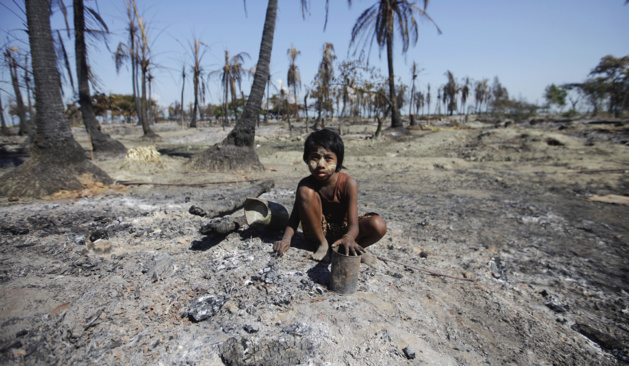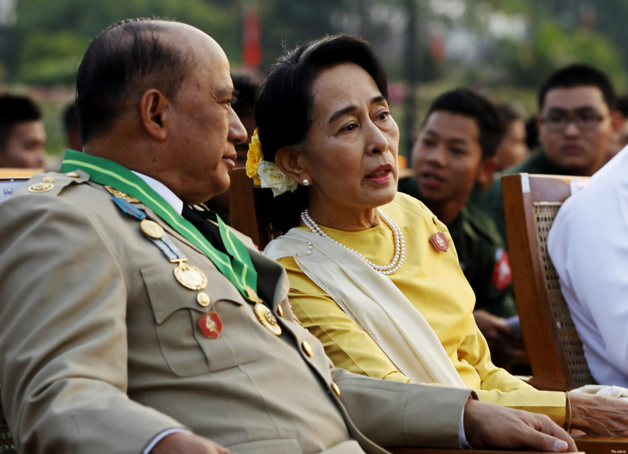This year, Burma is preparing for its second legislative elections of the century. The Nobel Peace Prize winner, Aung San Suu Kyi, hopes to be elected as president. The 2015 elections may well be the freest that they have ever witnessed. However, In actual fact, the Burmese Constitution states that a Burmese person married to a foreigner or who has foreign children is denied access to the presidency. Aung San Suu Kyi was married to a now deceased British man, and had children with him. Requests have been made to change the Constitution, but there are no guarantees. The revision has to be accepted by 75% of the Parliament.
A Determination to eradicate the muslim population
Foreigners are, in Burma, a source of significant internal conflict. More than a hundred subgroups, from around ten ethnic groups, are known in the country. Many of them have engaged in violent conflict with those in power. But in 2013, negotiations took place in order to arrange a ceasefire.
However, this didn’t apply to the Rohingyas, the most persecuted population according to the UN. The Rohingyas are Burma’s Muslim minority. They represent 4% of the Burmese population. In the 1990s, the Rohingyas were pushed back to the border by the Army. The latter organized arrests and forced displacements. The Muslims are now mostly concentrated in various cities in the State of Rakhine. In 1982, the Burmese state revoked their nationality, and they have been stateless since. As such, the Rohingya people do not exist.
Ashin Wirathu, leader of 969, a Buddhist organisation described by many as Anti-Islamic, considers the Rohingyas as “a threat to Burmese identity and Buddhist morals”.
He qualifies Islam as a “thief’s religion”. Anti-muslim leaflets and CDs are distributed all over the country. Human Rights Watch denounces it an “ethnic cleaning campaign against Muslims since 2012”.
Phil Robertson, Human Rights Watch Assistant Manager of Asia’s division, made his report: “ the Burmese government has engaged in an ethnic cleaning campaign that is still happening to this day through the refusal of access to humanitarian aid and the imposition of restrictions to their freedom to circulate”.
The importance of information and the problems of misinformation in the West
According to the journalist Sophie Ansel, the West has a significant role to play. Organisations such as Human Rights Watch of AVAAZ are very invested. They relate facts, curfews imposed upon the Rohingyas, and the refusal of the Army to help them access humanitarian aid.
AVAAZ denounces “facts preceding genocides” with “more than 200 people killed and 140 000 displaced people in 2012”. Obama made a speech on the conditions that Muslims suffer in Burma, but unfortunately, dozens of the Rohingyas’s houses were burned in response.
For President Thein Sein, the solution seems to be casting them out to “whichever country that might accept them”. But the massive arrivals of the Rohingyas to neighbouring countries exacerbates the problem, and these countries often close their borders. It would seem that only Malaysia is inclined to accept them, but the country is difficult to reach from Burma. Human Rights Watch asks for Burma to accept “an investigation on the crimes against humanity in the State of Arakan by an independent international commission”.































